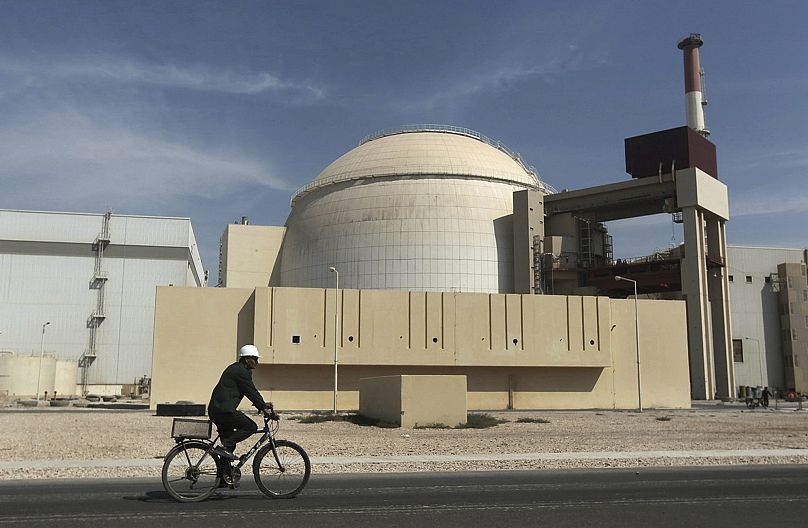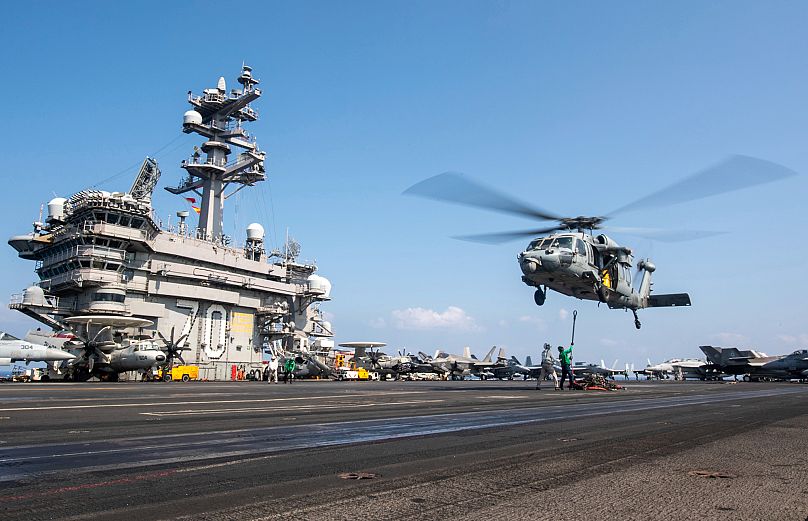Iran insisted on Tuesday that the next round of nuclear talks between Tehran and Washington would take place in Oman, contradicting earlier reports that negotiations would take place in Rome.
However, American officials have not confirmed the location of the talks yet.
On Monday, US President Donald Trump separately expressed frustration about the pace of the nuclear discussions.
"I think they're stringing us along," he said in the Oval Office during a meeting with El Salvador's president.
Satellite photos show a second US aircraft carrier, USS Carl Vinson, is now operating in Middle East waters ahead of the talks as Trump insists Iran must not obtain nuclear weapons and has threatened military action if negotiations fail.
The Vinson's arrival came as Iran's supreme leader Ali Khamenei endorsed the progress of the talks.
"We shouldn't be overly optimistic about this dialogue, nor overly pessimistic. The first steps have been taken well and executed properly. From here on, the process should be followed carefully. The red lines are clear, both for the other side and for us. We may or may not reach a result, but either way, it's worth pursuing," he said.
Khamenei also urged officials "not to tie the country's affairs" to the talks. "Of course, we don't fully trust them — we know who we're dealing with.”

Italian sources insist on Rome as the designated venue
According to an Italian government source who spoke anonymously to AP, talks will take place in Rome on Sunday.
"We received the request from the interested parties, via Oman, which is acting as mediator, and we gave a positive response," Italian Foreign Minister Antonio Tajani told reporters during a trip to Osaka.
"We are ready to host, as always, meetings that can yield positive outcomes, particularly on the nuclear issue."
Dutch Foreign Minister Caspar Veldkamp, speaking at a meeting in Luxembourg, also stated that the upcoming talks would be in Rome. Additionally, Iranian Foreign Minister Abbas Araghchi reportedly said on Monday that the talks would happen in Rome while speaking to his Iraqi counterpart, according to the state-run Iraqi News Agency.
However, early on Tuesday, the state-run IRNA news agency quoted Iranian Foreign Ministry spokesperson Esmail Baghaei as saying the talks would return to Oman, without providing further details.

Tehran warns of pursuing nuclear weapons development
The first round of talks over Tehran's rapidly advancing nuclear programme took place last weekend in Oman.
Trump has repeatedly threatened to launch air strikes targeting Iran's nuclear facilities if no agreement is reached.
Meanwhile, Iranian officials have increasingly warned that they could pursue a nuclear weapon using their stockpile of uranium enriched to near weapons-grade levels.
Trump said, "I want them to be a rich, great nation," but added, "These are radicalised people, and they cannot have a nuclear weapon."
In the meantime, the head of the United Nations nuclear watchdog separately confirmed that he would visit Iran later in the week, possibly to discuss ways to improve inspectors' access to Tehran's activities.
The 2015 Joint Comprehensive Plan of Action (JCPOA), widely known as the Iran nuclear deal, was heralded as one of the major diplomatic accomplishments of its time.
It saw Tehran receive sanctions relief for limitations on its nuclear programme.
But just three years later, Trump pulled the US out of the pact, calling it a "bad deal" and claiming he could do better himself.
The US withdrawal did not entirely destroy the JCPOA, but it did further inflame US-Iran tensions and made it harder for the deal's European members to keep it active.







